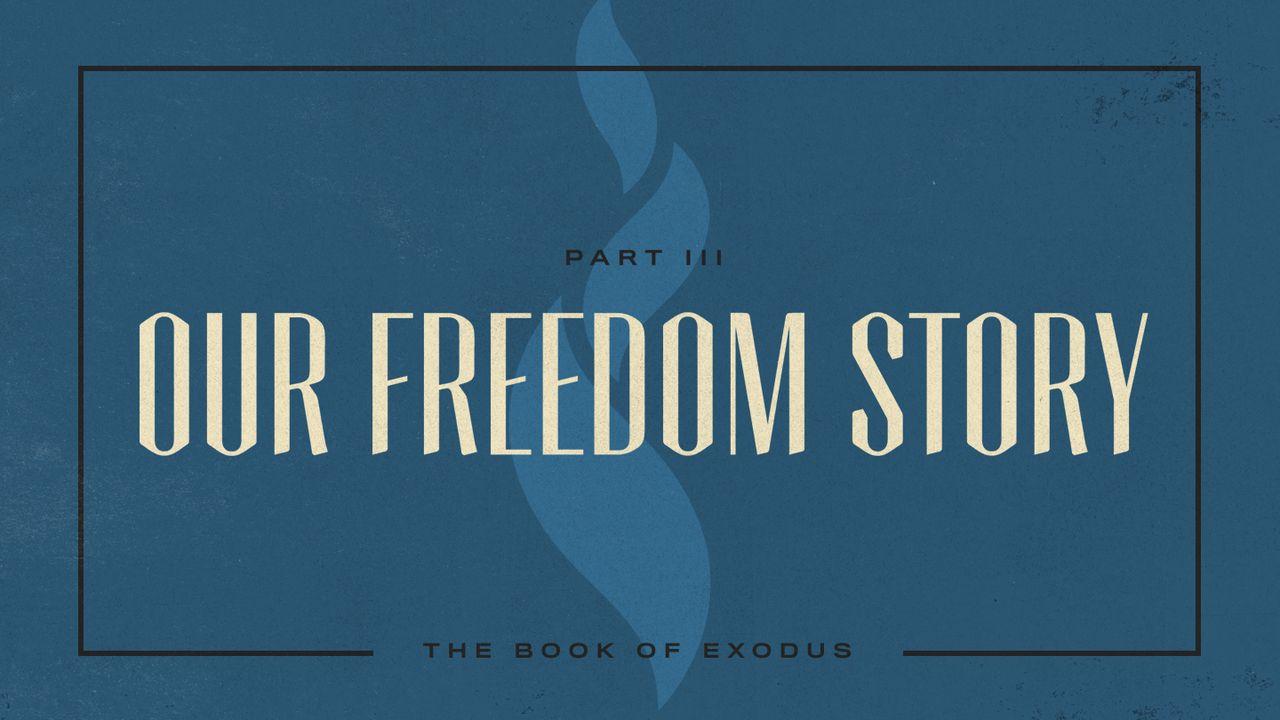Exodus: Our Freedom StoryExemplo

A Commandment, A Complaint
By Pastor Dan Hickling
“Then all the congregation of the children of Israel set out on their journey from the Wilderness of Sin, according to the commandment of the Lord, and camped in Rephidim; but there was no water for the people to drink. Therefore the people contended with Moses, and said, ‘Give us water, that we may drink.’ So Moses said to them, ‘Why do you contend with me? Why do you tempt the Lord?’ And the people thirsted there for water, and the people complained against Moses, and said, ‘Why is it you have brought us up out of Egypt, to kill us and our children and our livestock with thirst?”—Exodus 17:1–3 (NKJV)
Our next two devotions are to be taken as two halves of one whole. Today’s text will serve as the first part of a spiritual arc that tomorrow’s devotional will bring to a conclusion. And as we progress over the next two days, we’re going to focus on four words that begin with the letter “C.”
The first of the four words is “commandment,” because that’s what we see at the outset of Exodus chapter 17. As a refresher, we’re following the nation of Israel’s massive migration from Egypt to the new homeland God promised to them. He had a very deliberate way of doing this; He didn’t give them the endpoint and tell them He’d just meet up with them there. For as the rest of Exodus (and in fact the next three books in the Bible) will reveal, the Lord wanted to lead His people through this process via many twists and turns. It wasn’t going to be a straight line, but a series of personal instructions.
The “commandment” in the proceeding passage to come to Rephidim is an example of this. Understand that God had a deliberate reason for having them do this, a reason that will become clear as the story unfolds. But before we get to that, we need to underscore the fact that what we’re about to get into is based on God’s commandment. It’s His doing, not Moses’ and not man’s. That’s a critical point, because we’re about to see how this commandment leads to our next word, which is “complaint.”
Wouldn’t you know that the place the Lord commanded His people to go was without water! How could an all-knowing God overlook something so basic like this? How can you expect approximately 2 million people, not to mention all their livestock, to survive out in the open wilderness without any water? They would all be dead within a few days!
The masses began to think these thoughts and, even though the command that led them to this place of thirst came from God, the people focused their frustrated thirst at Moses and start complaining about the inexcusable absence of water. If you’re Moses, you’re thinking to yourself, I was just following God’s orders, what do you want from me?
A lot of life can be like that. In many instances just doing the right thing, the thing you know God wants you to do, leads to new challenges and even complaints from others. The natural tendency when this happens is to regret the decision to obey God’s command. But that’s a mistake, because the complaints of others don’t supersede the need to follow the command of God.
Again, we’re going to see another act to this story in tomorrow’s devotional. But until then, here’s an absolute truth you can always depend on: If God has commanded something, obeying Him is always the right decision, despite the way people react to it. His concerns will always be more important than people’s, even if there’s a couple million of them!
Pause: What spiritual truth can be derived from the words “commandment” and “complaint”?
Practice: Reflect on why you need to know this truth and how you might apply it with where you’re at in life right now.
Pray: Lord, help me to not be a man pleaser but a God pleaser. Give me the fortitude of faith that does not cave to the complaints of others but stands strong in the conviction of obeying Your commands. Amen.
Escritura
Sobre este plano

In part three of this seven-part study through the Book of Exodus, we'll explore Exodus 14–17.
More
